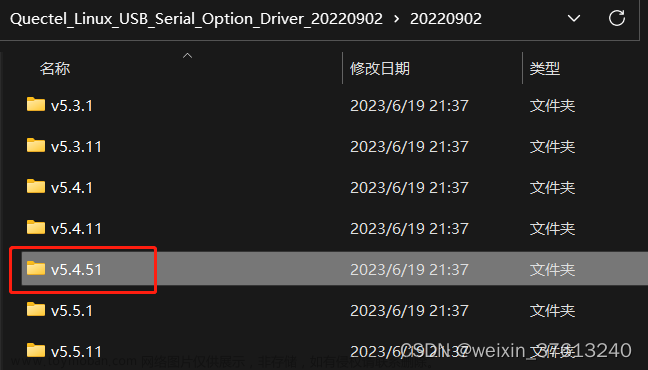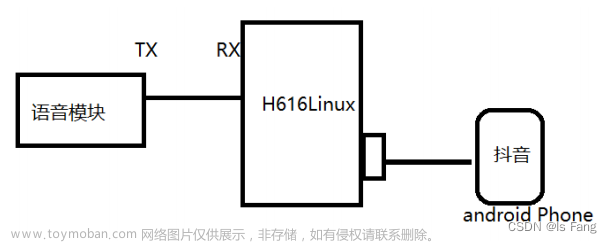1. 引言
前序博客有:
- RISC Zero zk-STARK证明系统代码解析
- RISC Zero各功能模块代码解析
cargo-risczero模块开源代码见:
- https://github.com/risc0/risc0/tree/main/risc0/cargo-risczero(Rust)
cargo-risczero模块:
- 用于帮助创建、管理和测试RISC Zero项目的Cargo extension。
## Installing from local source. Note: this can be very slow.
cargo install --path risc0/cargo-risczero
# 查看所安装的risczero版本
cargo risczero --version
# 从源码编译安装toolchain,要等待的时间有点长。可使用cargo risczero install
cargo risczero build-toolchain
# 确认toolchain安装成功
# rustup toolchain list --verbose | grep risc0
risc0 /root/.risc0/rust/build/host/stage2
RISC Zero toolchain,用于将guest程序,编译为供zkVM执行的ELF二进制文件。
cargo risczero支持的指令有:
# cargo risczero --help
The `risczero` command
Usage: cargo risczero <COMMAND>
Commands:
build Build guest code
build-toolchain Build the riscv32im-risc0-zkvm-elf toolchain
install Install the riscv32im-risc0-zkvm-elf toolchain
new Creates a new risczero starter project
help Print this message or the help of the given subcommand(s)
Options:
-h, --help Print help
-V, --version Print version
使用cargo risczero new来生成默认模板,可:
- 支持本地proving
- 和远程proving
如:cargo risczero new --template risc0/templates/rust-starter --templ-subdir="" hello-world
/data/test# cargo risczero new --template risc0/templates/rust-starter --templ-subdir="" --path $(pwd)/risc0 --dest $(pwd) --guest-name zyd hello-world
[ 1/20] Done: .gitignore
[ 2/20] Done: .vscode/settings.json
[ 3/20] Done: .vscode
[ 4/20] Done: Cargo.toml
[ 5/20] Done: LICENSE [ 6/20] Done: README.md [ 7/20] Done: host/Cargo.toml [ 8/20] Done: host/src/main.rs [ 9/20] Done: host/src [10/20] Done: host [11/20] Done: methods/Cargo.toml [12/20] Done: methods/build.rs [13/20] Done: methods/guest/Cargo.toml [14/20] Done: methods/guest/src/main.rs [15/20] Done: methods/guest/src [16/20] Done: methods/guest [17/20] Done: methods/src/lib.rs [18/20] Done: methods/src [19/20] Done: methods [20/20] Done: rust-toolchain.toml
/data/test# ls hello-world/
Cargo.toml LICENSE README.md host methods rust-toolchain.toml
所创建的hello-world项目基本结构为:
project_name
├── Cargo.toml
├── host
│ ├── Cargo.toml
│ └── src
│ └── main.rs <-- [Host code goes here]
└── methods
├── Cargo.toml
├── build.rs
├── guest
│ ├── Cargo.toml
│ └── src
│ └── bin
│ └── method_name.rs <-- [Guest code goes here]
└── src
└── lib.rs
可参考Tutorial: Building your first zkVM application 来做个简单的zkVM应用。
hello-world# cargo run --release
Compiling hello-world-methods v0.1.0 (/data/test/hello-world/methods)
warning: unused import: `valid_control_ids`
--> /data/test/risc0/risc0/zkvm/src/host/recursion/mod.rs:33:25
|
33 | pub use self::receipt::{valid_control_ids, SuccinctReceipt};
| ^^^^^^^^^^^^^^^^^
|
= note: `#[warn(unused_imports)]` on by default
warning: `risc0-zkvm` (lib) generated 1 warning (run `cargo fix --lib -p risc0-zkvm` to apply 1 suggestion)
multiply: Starting build for riscv32im-risc0-zkvm-elflo-world-methods(build)
multiply: Finished release [optimized] target(s) in 0.05s
Compiling host v0.1.0 (/data/test/hello-world/host)
Finished release [optimized + debuginfo] target(s) in 1m 31s
Running `target/release/host`
Hello, world! I know the factors of 391, and I can prove it!
# ps -aux|grep risc
root 3500042 102 0.0 1647908 1026484 pts/2 Sl+ 10:39 1:03 /data/rust/.rust_up/toolchains/stable-x86_64-unknown-linux-gnu/bin/rustc --crate-name host --edition=2021 host/src/main.rs --error-format=json --json=diagnostic-rendered-ansi,artifacts,future-incompat --diagnostic-width=140 --crate-type bin --emit=dep-info,link -C opt-level=3 -C lto -C debuginfo=1 -C metadata=09ebe51e3bb70af4 -C extra-filename=-09ebe51e3bb70af4 --out-dir /data/test/hello-world/target/release/deps -L dependency=/data/test/hello-world/target/release/deps --extern hello_world_methods=/data/test/hello-world/target/release/deps/libhello_world_methods-2e425fabd1623d4e.rlib --extern risc0_zkvm=/data/test/hello-world/target/release/deps/librisc0_zkvm-b02ce46c1b1af0a7.rlib --extern serde=/data/test/hello-world/target/release/deps/libserde-9d092d72c197278a.rlib --extern tracing_subscriber=/data/test/hello-world/target/release/deps/libtracing_subscriber-c36e69b81a0b7d84.rlib -L native=/data/test/hello-world/target/release/build/ring-84695c43e581a53c/out
root 3500112 0.0 0.0 7004 2048 pts/5 S+ 10:40 0:00 grep --color=auto risc
对guest程序的编译结果见:vim target/release/build/hello-world-methods-085a759ae9cd777d/out/methods.rs
pub const MULTIPLY_ELF: &[u8] = &[.......]
pub const MULTIPLY_ID: [u32; 8] = [3017128806, 1930636717, 3416458147, 548912590, 3161934873, 2600167522, 1958757367, 1384218650];
pub const MULTIPLY_PATH: &str = r#"/data/test/hello-world/target/riscv-guest/riscv32im-risc0-zkvm-elf/release/multiply"#;
let prover = default_prover();对应支持的prover类型有:【默认为ipc类型,用ps -aux查看有root 622607 1212 0.0 8809300 144324 pts/2 Sl+ 02:58 0:24 r0vm --port 46581进程信息。】
/// Return a default [Prover] based on environment variables and feature flags.
///
/// The `RISC0_PROVER` environment variable, if specified, will select the
/// following [Prover] implementation:
/// * `bonsai`: [BonsaiProver] to prove on Bonsai.
/// * `local`: [local::LocalProver] to prove locally in-process. Note: this
/// requires the `prove` feature flag.
/// * `ipc`: [ExternalProver] to prove using an `r0vm` sub-process. Note: `r0vm`
/// must be installed. To specify the path to `r0vm`, use `RISC0_SERVER_PATH`.
///
/// If `RISC0_PROVER` is not specified, the following rules are used to select a
/// [Prover]:
/// * [BonsaiProver] if the `BONSAI_API_URL` and `BONSAI_API_KEY` environment
/// variables are set unless `RISC0_DEV_MODE` is enabled.
/// * [local::LocalProver] if the `prove` feature flag is enabled.
/// * [ExternalProver] otherwise.
pub fn default_prover() -> Rc<dyn Prover> {
.....
}
2. zkvm的serde模块
zkvm的serde模块,代码见:
- zkvm/src/serde
serde模块:
- 为RISC Zero zkVM的序列化和反序列化工具。zkVM host和guest之间所传输的数据需序列化。
- 包含了相应的序列化和反序列化工具。
- host端:
- 使用类似
to_vec这样的序列化函数来对数据序列化后,传输给guest。 - 当从guest读取数据时,使用类似
from_slice这样的反序列化函数。
use risc0_zkvm::serde::{from_slice, to_vec}; let input = 42_u32; let encoded = to_vec(&[input]).unwrap(); let output: u32 = from_slice(&encoded).unwrap(); assert_eq!(input, output); - 使用类似
- guest端:其所需的序列化和反序列化函数,包含在
env模块内,如env::read和env::commit。guest端很少使用本serde模块。
详情可参看 RISC Zero zkVM guest程序优化技巧 及其 与物理CPU的关键差异 的“2. guest程序优化技巧及建议”。
见zkvm/src/serde/serializer.rs 序列化模块:
- 负责将各种结构体转换为
Vec<u32>,即a vector of u32 words。
见zkvm/src/serde/deserializer.rs 反序列化模块:
- 负责将
Vec<u32>,即已序列化的word-based data,反序列化为各结构体。
2.1 l2iterative的更紧凑的zkVM序列化模块
l2iterative的更紧凑的zkVM序列化模块,开源代码见:
- https://github.com/l2iterative/alternative-serde0
RISC Zero zkVM 官方的 zkvm/src/serde/serializer.rs 序列化模块,只将提供给zkVM的输入序列化为Vec<u32>,这就意味着会有Rust中存在的一个主要公开问题:
- 当
serde为Rust数据结构实现Serialize和Deserialize时,其遵循如下实现:
且impl<T> Serialize for Vec<T> where T: Serialize { #[inline] fn serialize<S>(&self, serializer: S) -> Result<S::Ok, S::Error> where S: Serializer, { serializer.collect_seq(self) } }collect_seq函数具有如下默认实现,即意味着元素需串联逐个序列化:pub trait Serializer: Sized { fn collect_seq<I>(self, iter: I) -> Result<Self::Ok, Self::Error> where I: IntoIterator, <I as IntoIterator>::Item: Serialize, { let mut iter = iter.into_iter(); let mut serializer = tri!(self.serialize_seq(iterator_len_hint(&iter))); tri!(iter.try_for_each(|item| serializer.serialize_element(&item))); serializer.end() } }
这意味着,当对字节数组Vec<u8>进行序列化时,每个元素将转换为u32类型,然后对Vec<u32>进行序列化,这将导致4倍的存储开销。
为提升效率,应对不同的T定义不同的规则,特别是当T = u8的情况。
解决方案一为:
- 使用serde_bytes库,通过定制化serde函数,可绕过该限制:
serde_bytes库的思想为:不对use serde::{Deserialize, Serialize}; #[derive(Deserialize, Serialize)] struct Efficient<'a> { #[serde(with = "serde_bytes")] bytes: &'a [u8], #[serde(with = "serde_bytes")] byte_buf: Vec<u8>, #[serde(with = "serde_bytes")] byte_array: [u8; 314], }Vec<T>应用某通用策略,而是由开发者来在2种策略间切换,从而会存在如下问题:- 1)要求开发者对layers和抽象layers进行修改。若某开发者使用了4个库:A、B、C、D,A依赖B,B依赖C,C依赖D,且D使用
Vec<u8>,则开发者需直接到D来修改其数据结构定义。从而会引入与系统其它部分的兼容性问题。 - 2)由于
Vec<u8>在Rust数据结构中非常常见,而开发者需深入代码来解决该问题,这将难以理解。 - 3)若需要大量的补丁,将难以将代码与其原始库同步。这不仅增加了维护开销,而且在实践中经常会导致安全问题。
- 1)要求开发者对layers和抽象layers进行修改。若某开发者使用了4个库:A、B、C、D,A依赖B,B依赖C,C依赖D,且D使用
人们寄希望与specialization来解决该问题,但其尽快stable的概率很低。强烈不建议在生产环境中使用nightly版本,且不适合RISC Zero zkVM中使用nightly版本,因为它正在成为Rust的一部分。
l2iterative的解决方案为:
- 不同于以上,自下而上的解决方案,采用的自上而下的解决方案,从而无需修改现有Rust中所实现的数据结构,展示了将RISC Zero输入替换为
Vec<u32>的序列化及反序列化实现。 - 其核心思想是引入finite-state automata(名为
ByteBufAutomata),当其观察到有多个连续u8待序列化时,会临时修改序列化方式,类似于RISC Zero所推荐的 padded-to-word 方式。- 激活:当遇到
u8类型时,则激活。- 序列化:若前一
u8未占满整个word,则会将新的u8添入该word中。否则,会创建新word。 - 反序列化:为读取单个
u8,该automata会读取整个word,将其转换为4个自己,并提供这4个字节。该流程会一直重复,直到该automata不激活了,此时要么没有剩余的bytes,或者,所有剩余的bytes均为0。【使用activate_byte_buf_automata_and_take!(self)宏】
- 序列化:若前一
- 不激活:当遇到其它类型时,则不激活。【使用
deactivate_byte_buf_automata!(self)宏】
- 激活:当遇到
#[derive(Default)]
struct ByteBufAutomata(pub u8);
impl ByteBufAutomata {
#[inline(always)]
fn deactivate(&mut self) {
self.0 = 0;
}
fn activate_and_take<W: WordWrite>(&mut self, stream: &mut W, v: u8) {
if self.0 == 0 {
stream.write_word(v as u32);
self.0 = 1;
} else {
let w = stream.get_last_word();
stream.set_last_word(w | ((v as u32) << (self.0 as usize * 8)));
self.0 = (self.0 + 1) % 4;
}
}
}
macro_rules! activate_byte_buf_automata_and_take {
($self_name:ident, $v: expr) => {
$self_name
.byte_buf_automata
.borrow_mut()
.activate_and_take(&mut $self_name.stream, $v)
};
}
macro_rules! deactivate_byte_buf_automata {
($self_name:ident) => {
$self_name.byte_buf_automata.borrow_mut().deactivate();
};
}
对应的序列化为:
// Old
impl<'a, W: WordWrite> serde::ser::Serializer for &'a mut Serializer<W> {
fn serialize_u8(self, v: u8) -> Result<()> {
self.serialize_u32(v as u32)
}
fn serialize_u32(self, v: u32) -> Result<()> {
self.stream.write_words(&[v]);
Ok(())
}
}
// New
impl<'a, W: WordWrite> serde::ser::Serializer for &'a mut Serializer<W> {
fn serialize_u8(self, v: u8) -> Result<()> {
activate_byte_buf_automata_and_take!(self, v);
Ok(())
}
fn serialize_u32(self, v: u32) -> Result<()> {
deactivate_byte_buf_automata!(self);
self.stream.write_word(v);
Ok(())
}
}
对应的反序列化为:
// old
impl<'de, 'a, R: WordRead + 'de> serde::Deserializer<'de> for &'a mut Deserializer<'de, R> {
fn deserialize_u8<V>(self, visitor: V) -> Result<V::Value>
where
V: Visitor<'de>,
{
visitor.visit_u32(self.try_take_word()?)
}
fn deserialize_u128<V>(self, visitor: V) -> Result<V::Value>
where
V: Visitor<'de>,
{
let mut bytes = [0u8; 16];
self.reader.read_padded_bytes(&mut bytes)?;
visitor.visit_u128(u128::from_le_bytes(bytes))
}
}
// new
impl<'de, 'a, R: WordRead + 'de> serde::Deserializer<'de> for &'a mut Deserializer<'de, R> {
fn deserialize_u8<V>(self, visitor: V) -> Result<V::Value>
where
V: Visitor<'de>,
{
visitor.visit_u8(activate_byte_buf_automata_and_take!(self))
}
fn deserialize_u128<V>(self, visitor: V) -> Result<V::Value>
where
V: Visitor<'de>,
{
deactivate_byte_buf_automata!(self);
let mut bytes = [0u8; 16];
self.reader.read_padded_bytes(&mut bytes)?;
visitor.visit_u128(u128::from_le_bytes(bytes))
}
}
测试用例见:
#[derive(Debug, Serialize, PartialEq, Eq, Deserialize)]
pub struct WrappedU8(pub u8);
#[derive(Default, Debug, PartialEq, Eq, Serialize, Deserialize)]
pub struct Struct1 {
pub u8v: Vec<WrappedU8>,
pub u16v: Vec<u16>,
pub u32v: Vec<u32>,
pub u64v: Vec<u64>,
pub i8v: Vec<i8>,
pub i16v: Vec<i16>,
pub i32v: Vec<i32>,
pub i64v: Vec<i64>,
pub u8s: u8,
pub bs: bool,
pub some_s: Option<u16>,
pub none_s: Option<u32>,
pub strings: Vec<u8>,
pub stringv: Vec<Vec<u8>>,
}
#[test]
fn test_struct_1() {
let mut test_s = Struct1::default();
test_s.u8v = vec![WrappedU8(1u8), WrappedU8(231u8), WrappedU8(123u8)];
test_s.u16v = vec![124u16, 41374u16];
test_s.u32v = vec![14710471u32, 3590275702u32, 1u32, 2u32];
test_s.u64v = vec![352905235952532u64, 2147102974910410u64];
test_s.i8v = vec![-1i8, 120i8, -22i8];
test_s.i16v = vec![-7932i16];
test_s.i32v = vec![-4327i32, 35207277i32];
test_s.i64v = vec![-1i64, 1i64];
test_s.u8s = 3u8;
test_s.bs = true;
test_s.some_s = Some(5u16);
test_s.none_s = None;
test_s.strings = b"Here is a string.".to_vec();
test_s.stringv = vec![b"string a".to_vec(), b"34720471290497230".to_vec()];
let mut res = Vec::<u32>::new();
let mut serializer = crate::Serializer::new(&mut res);
let _ = test_s.serialize(&mut serializer);
let answer = vec![
3u32, 8120065, 2, 124, 41374, 4, 14710471, 3590275702, 1, 2, 2, 658142100, 82167,
1578999754, 499911, 3, 4294967295, 120, 4294967274, 1, 4294959364, 2, 4294962969, 35207277,
2, 4294967295, 4294967295, 1, 0, 259, 1, 5, 0, 17, 1701995848, 544434464, 1953701985,
1735289202, 46, 2, 8, 1769108595, 1629513582, 17, 842478643, 825701424, 875575602,
858928953, 48,
];
assert_eq!(answer, res);
let recovered: Struct1 = crate::deserializer::from_slice(&res).unwrap();
assert_eq!(test_s, recovered);
}
3. zkvm的env模块
zkvm的env模块见:文章来源:https://www.toymoban.com/news/detail-806209.html
- zkvm/src/host/client/env.rs
env模块内:文章来源地址https://www.toymoban.com/news/detail-806209.html
- 定义了ExecutorEnv和ExecutorEnvBuilder
- 可用于host和guest。
详情可参看 RISC Zero zkVM guest程序优化技巧 及其 与物理CPU的关键差异 的“2. guest程序优化技巧及建议”。
/// A builder pattern used to construct an [ExecutorEnv].
#[derive(Default)]
pub struct ExecutorEnvBuilder<'a> {
inner: ExecutorEnv<'a>,
}
/// The [crate::Executor] is configured from this object.
///
/// The executor environment holds configuration details that inform how the
/// guest environment is set up prior to guest program execution.
#[derive(Default)]
pub struct ExecutorEnv<'a> {
pub(crate) env_vars: HashMap<String, String>,
pub(crate) args: Vec<String>,
pub(crate) segment_limit_po2: Option<u32>,
pub(crate) session_limit: Option<u64>,
pub(crate) posix_io: Rc<RefCell<PosixIo<'a>>>,
pub(crate) slice_io: Rc<RefCell<SliceIoTable<'a>>>,
pub(crate) input: Vec<u8>,
pub(crate) trace: Vec<Rc<RefCell<dyn TraceCallback + 'a>>>,
pub(crate) assumptions: Rc<RefCell<Assumptions>>,
pub(crate) segment_path: Option<PathBuf>,
pub(crate) pprof_out: Option<PathBuf>,
}
RISC Zero系列博客
- RISC0:Towards a Unified Compilation Framework for Zero Knowledge
- Risc Zero ZKVM:zk-STARKs + RISC-V
- 2023年 ZK Hack以及ZK Summit 9 亮点记
- RISC Zero zkVM 白皮书
- Risc0:使用Continunations来证明任意EVM交易
- Zeth:首个Type 0 zkEVM
- RISC Zero项目简介
- RISC Zero zkVM性能指标
- Continuations:扩展RISC Zero zkVM支持(无限)大计算
- A summary on the FRI low degree test前2页导读
- Reed-Solomon Codes及其与RISC Zero zkVM的关系
- RISC Zero zkVM架构
- RISC-V与RISC Zero zkVM的关系
- 有限域的Fast Multiplication和Modular Reduction算法实现
- RISC Zero的Bonsai证明服务
- RISC Zero ZKP协议中的商多项式
- FRI的Commit、Query以及FRI Batching内部机制
- RISC Zero的手撕STARK
- RISC Zero zkVM guest程序优化技巧 及其 与物理CPU的关键差异
- ZK*FM:RISC Zero zkVM的形式化验证
- Zirgen MLIR:RISC-Zero的ZK-circuits形式化验证
- 以RISC Zero ZK Fraud Proof赋能Optimistic Rollups
- zkSummit10 亮点记
- 技术探秘:在RISC Zero中验证FHE——由隐藏到证明:FHE验证的ZK路径(1)
- 技术探秘:在RISC Zero中验证FHE——RISC Zero应用的DevOps(2)
- RISC Zero STARK证明系统时序图及规范
- RISC Zero zkVM Host & Guest 101
- RISC Zero zk-STARK证明系统代码解析
- RISC Zero的Babybear域 及其 扩域
- RISC Zero各功能模块代码解析
到了这里,关于RISC Zero 的 cargo-risczero相关模块代码解析的文章就介绍完了。如果您还想了解更多内容,请在右上角搜索TOY模板网以前的文章或继续浏览下面的相关文章,希望大家以后多多支持TOY模板网!










